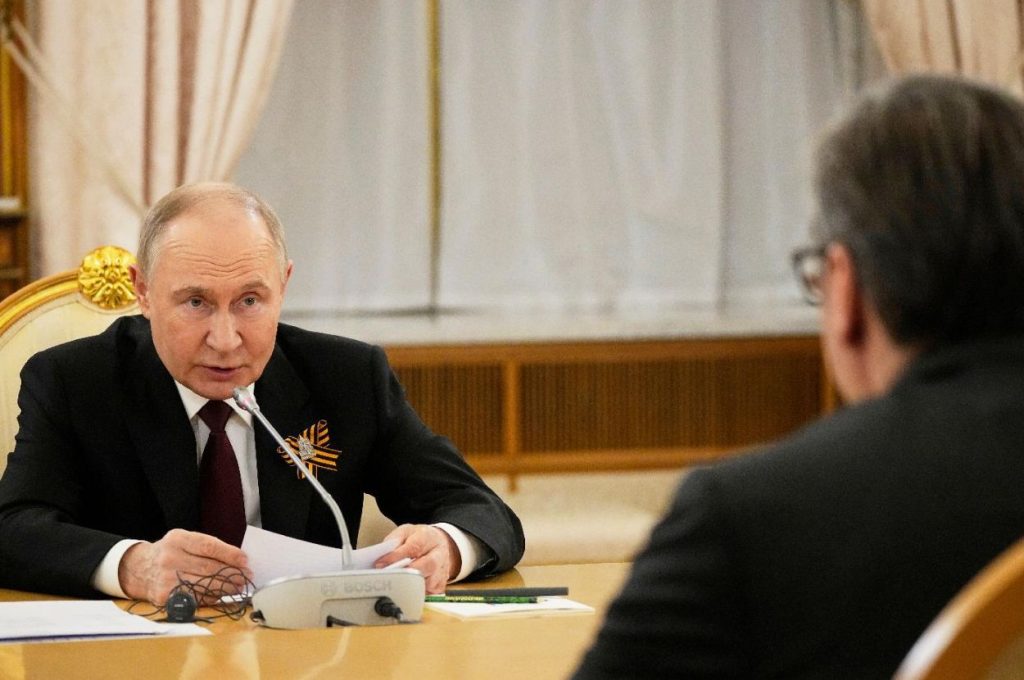The government nods along when Russians accuse the EU of preparing a “Maidan” in Serbia
The regime of Aleksandar Vučić received a tailwind from Russia’s Foreign Intelligence Service. On September 15, the “shocking revelation” by the Russian service, that the EU is “preparing a Serbian Maidan” and a “bloody scenario” for November 1, echoed through the most influential pro-government media. Serbia’s President thanked them, convinced, as he put it, that those who had “organized the colour revolution will not simply give up.” Belgrade and Moscow thus stood side by side in pushing subversive narratives against the EU. And the Serbian authorities are already well-trained in doing just that.
For months, government officials, led by Serbian President Aleksandar Vučić, have claimed that student blockades and protests following the collapse of a canopy in Novi Sad were in fact a “colour revolution attempt”. They saw the organizers and financiers in the West, just as Moscow does.
That Vučić’s regime is on the same wavelength as Putin’s was evident again in mid-September, when the most influential Serbian media carried reports from Russia’s Foreign Intelligence Service that the European Union was “preparing a Serbian Maidan”. From the mainstream media we learned that “European elites are ready to exploit” the anniversary of the tragic events in Novi Sad on November 1, and that precisely then they would “turn the situation to their advantage”.
“Brussels expects that by pumping money into media and NGOs it will mobilize the protest electorate, bring people onto the streets, and carry out the ‘Serbian Maidan’ according to a script that has been tested many times,” the media relayed from the Russian intelligence.
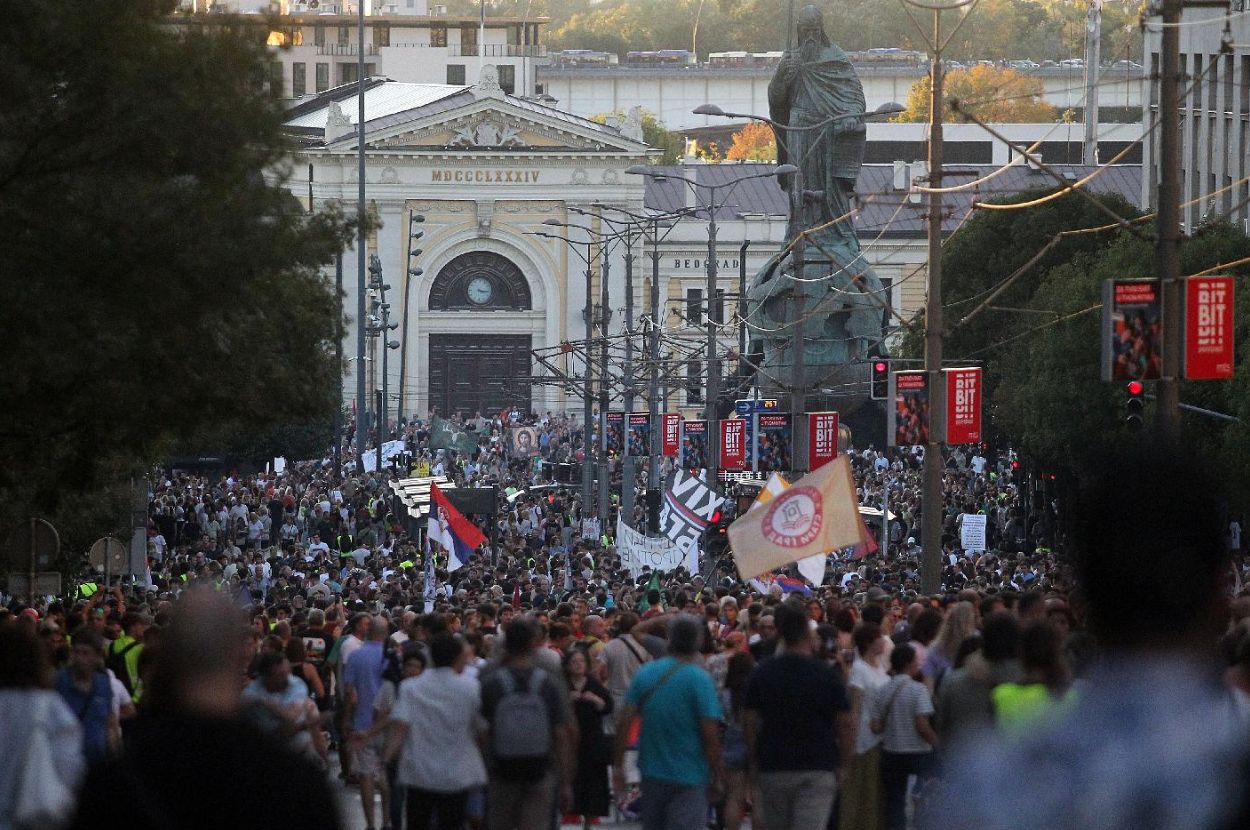
Vučić: Thanks to Russian partners
Reactions followed. As reported by RTS, Serbian President Aleksandar Vučić stated that Serbian intelligence services would contact their Russian counterparts and that he expected a “final attempt to seize power by force.”
“I have no doubt that those who organized the color revolution cannot simply give up – too much money has been invested – so they will have to make a final attempt. We have been ready for that for a long time; we were already prepared for such an attempt before March 15. Perhaps we were caught off guard and unprepared in December, January, and part of February, but since February 15 we have been much more prepared. And when they criticize us over ammunition, we read it carefully, analyze it carefully, and respond accordingly to our Russian partners, applying certain measures. We always follow with attention and read what they say. So, thank you to our Russian partners for the information and intelligence. Our service will contact them further. We will preserve, defend, and protect Serbia,” the President said.
And he was not the only one who stood shoulder to shoulder with the Russian service. One of Vučić’s closest associates, Finance Minister and First Deputy Prime Minister Siniša Mali, did the same. He declared that what the Russian service had revealed was “the strongest confirmation to the people of Serbia” that the government was “right”.
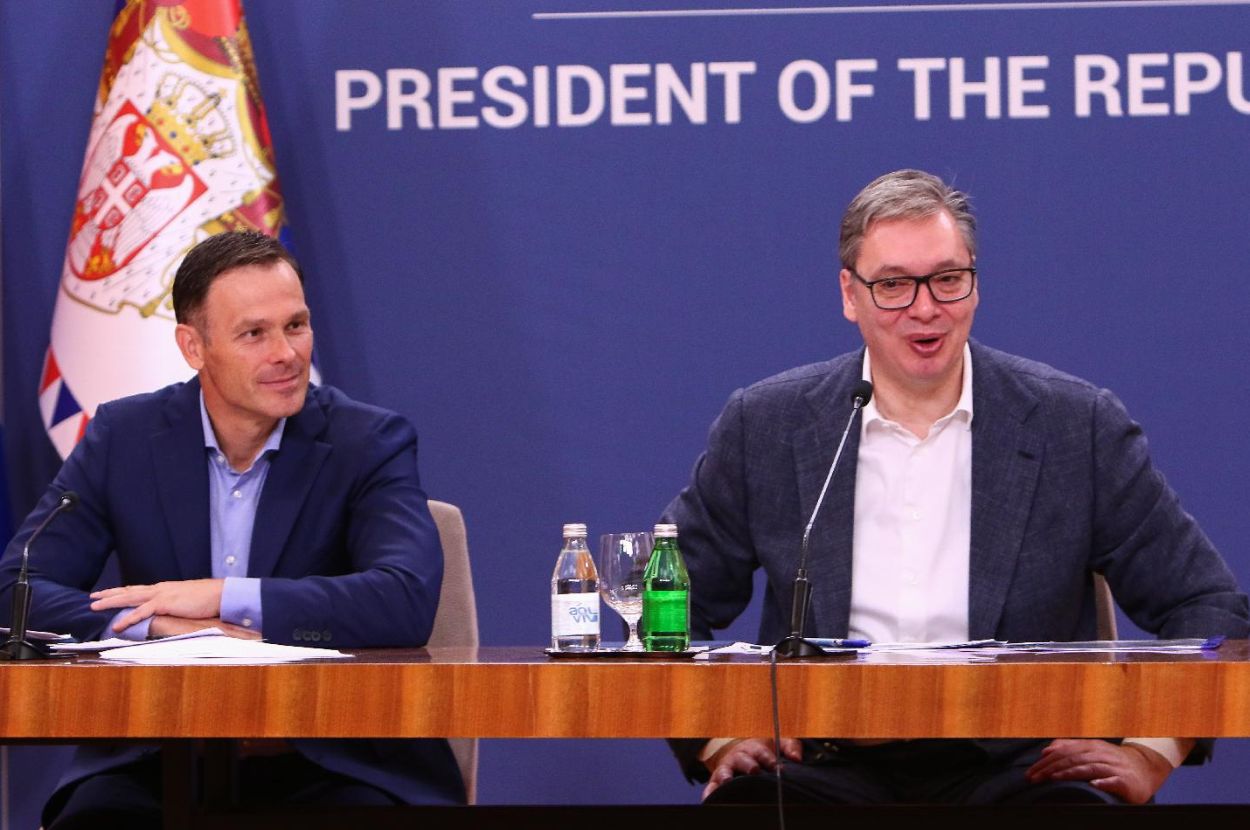
“The discovery of Russia’s foreign intelligence service about the attempt at a Maidan is extremely important, and those who carefully read what their very respectable service – one of the best in the world – has said, will see that it is not far from the truth. And that only confirms what we have been saying, what the President has been saying: that a color revolution is underway in Serbia. There is no longer any doubt, especially with the vast sums of money directed toward certain opposition figures and the blockade organizers. That alone speaks volumes about the situation Serbia has found itself in, what we have been through, and why we endured what we did over the past eleven months,” Mali said, adding:
“Now, it won’t seem like only we are saying this, the Russian Intelligence Service has seen it too, so that is the strongest confirmation for all citizens of Serbia that we are right. And of course, it hasn’t succeeded”.
Miloš Vučević, leader of the Serbian Progressive Party, commenting on the Russians’ “findings” about preparations for a “Serbian Maidan,” said he was “not surprised that such a scenario is being prepared”.
“There will be attempts at violence. They will exploit the tragedy, the loss of 16 lives, and try to monopolize it. The state will have to be ready, to ensure the state is not overthrown. If we lose the state now, we will not regain it for decades to come,” Vučević said.
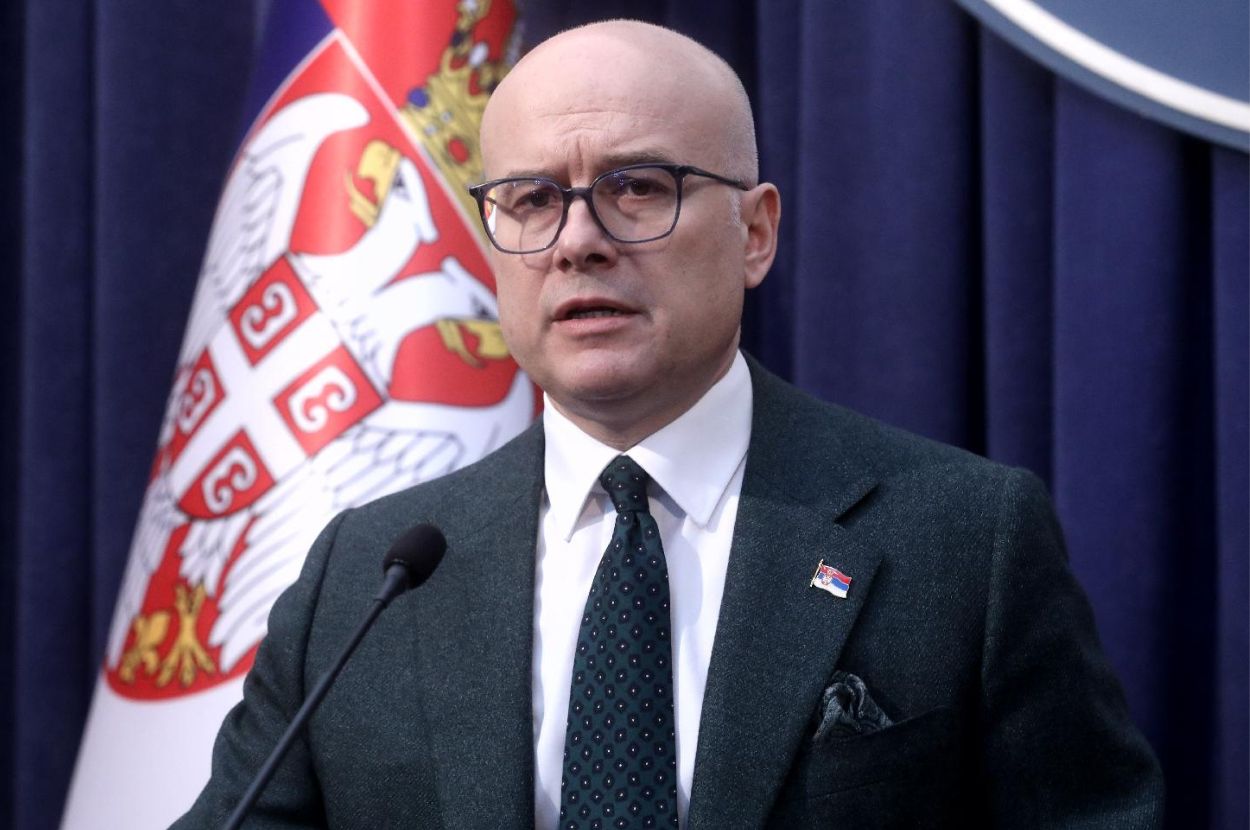
Russian Ambassador: The EU wants someone who will obey Brussels without question
Mainstream media kept the topic alive in the following days. TV Prva hosted the Russian ambassador to Belgrade, Aleksandr Botsan-Kharchenko, in its central news program, where one of the topics was the “threat of a new Maidan.” The Russian diplomat said that EU pressures on Serbia had not stopped and that Brussels wanted a leader who would obey.
“The intelligence service has its own data, which are accurate. We understand that they (the EU) would like changes at the top, for someone to come in who will listen without objection and do what Brussels wants,” said Botsan-Kharchenko, as reported by RT Balkan and domestic mainstream portals.
“Attempted coup ordered by Europeans”
On August 1, exactly nine months after the canopy collapse in Novi Sad, in a case concerning the reconstruction of the railway station, 11 people were arrested, including former Ministers of Construction, Tomislav Momirović and Goran Vesić.
Mainstream media reported the news alongside claims that there had been a “massive attempted coup orchestrated by prosecutors on orders from the Europeans”. The main target of the campaign was Mladen Nenadić, the Chief Prosecutor of the Office for Organized Crime, with President Vučić himself joining the smear campaign, pointing the finger at Europe.
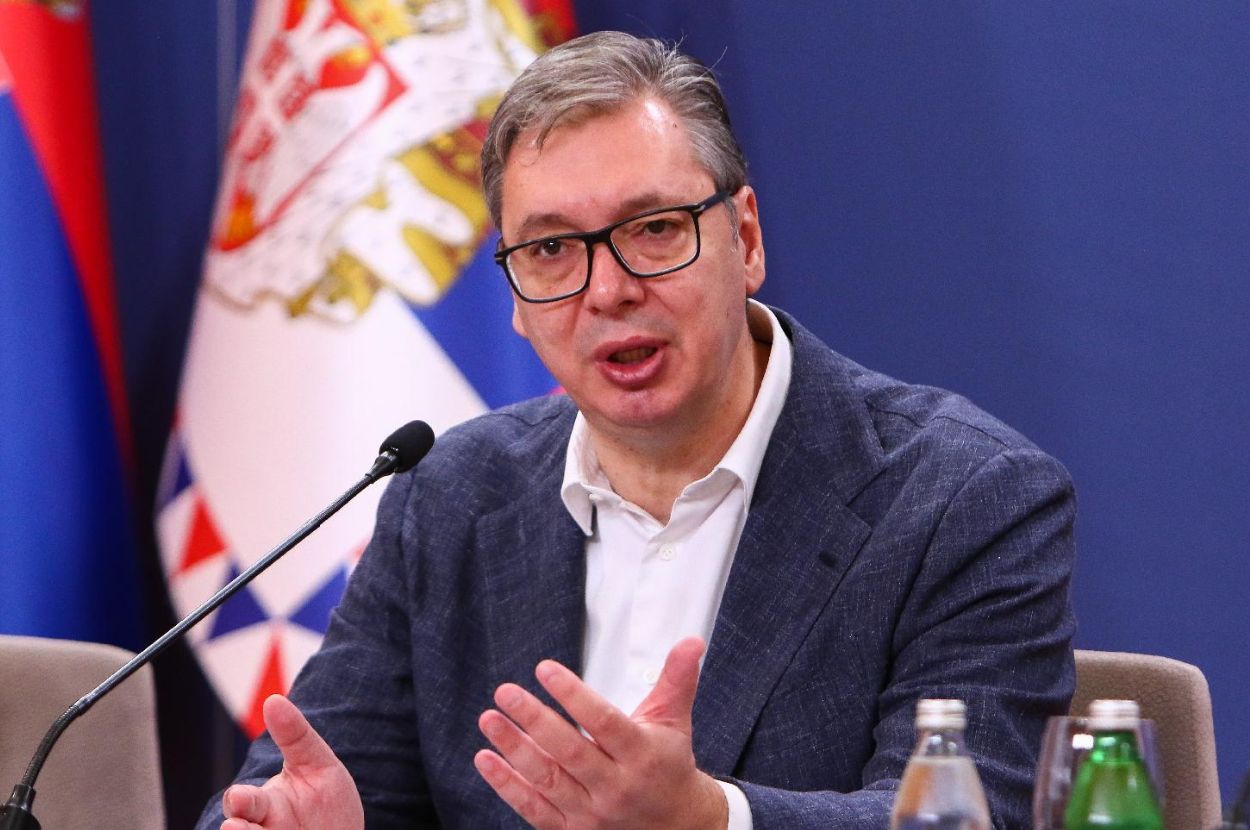
“Even that one, when he was calling on certain state bodies to do their job, said, you must do it, everything has been agreed with the Europeans. We have several witnesses, and more criminal charges will be filed accordingly. They will have to tell you which Europeans demanded that certain individuals be arrested. Because I thought this was supposed to be done on the basis of the law and the constitution, not sent for approval to some embassies,” Vučić said at the beginning of August.
The European Union, therefore, remains categorized by Serbia’s leadership as an enemy – one plotting unrest and chaos. And when help and support from Moscow arrive in the midst of it all, President Vučić and his closest allies welcome it with open arms.

